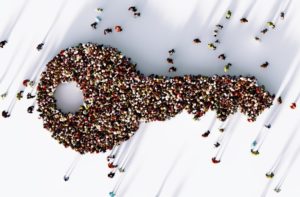Investing to Keep More Americans Healthy
Edited remarks by Erika Blacksher, PhD, John B. Francis Chair, Center for Practical Bioethics, at our 40th Anniversary Celebration Dinner on April 11, 2024.

I am a friend of science and am privileged to live in a nation that leads the world in making investments in basic biomedical research. These investments can lead to treatments that, like magic bullets, cure people with serious disease and illness.
But investments in biomedicine are not the only ones we need to make if we are going to protect our nation’s health. Good medicine and excellent healthcare professionals – and of course terrific clinical ethics consultants like Terry and Ryan – are critical. More Americans need better access to these important resources.
But these are not the only investments we need to make if we want to keep more Americans healthy in the first place.
We know that health starts in our homes, neighborhoods, schools, workplaces, recreation centers and places of worship. We know that how we treat one another, whether we trust one another and feel respected and supported, affects who stays healthy and who gets sick.
That’s not conjecture. That’s population health science.
Long before Covid-19 came to America, population health science told us the nation is unwell. We suffer from:
- deep and growing health inequities that afflict racially and economically marginalized groups,
- an overall health disadvantage that reaches even our most advantaged Americans,
- people in all racial groups are dying in the prime of their lives and our life expectancy is declining.
This is not happening in other high income countries. America is an outlier among rich countries.
To make matters worse, our dialogue and decision-making about these critical issues are politicized and polarized.
For the past 25 years I have been working in this arena—immersed in population health science and the questions of health justice it raises, and working on solutions. My solutions are not biomedical but what you might call deliberative.
- I believe answers to these hard questions are in our hands; they reside not on biomedical laboratories but in our communities, school boards, and statehouses.
- I believe most Americans know we have big problems to solve and want to get to work.
- I believe we that we can build a bigger ‘we’ that supports the health of all.
- But we need to find constructive ways to learn and problem-solve together.
For the past 12 years, I’ve been working in the arena of democratic deliberation—an approach to convening people from all walks of life to learn and problem solve together on tough value-laden questions for which there is no one right answer and about which people disagree. I’ve been working with communities around the country to use—and when necessary, adapt—this approach to stakeholder engagement to help their communities address the health challenges they face.
Make an impact
Every dollar you give helps providers, clinicians, patients and families decide what to do when it’s hard to agree about the “right” thing to do.


